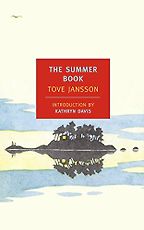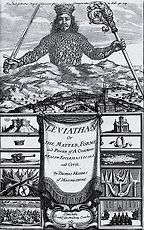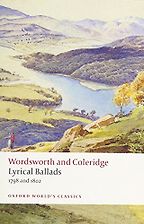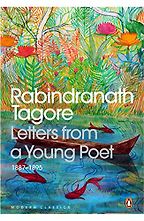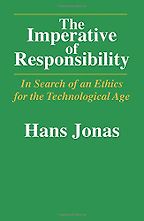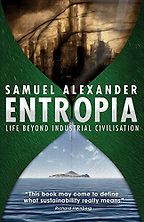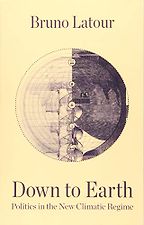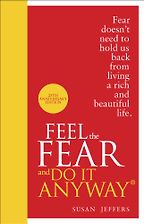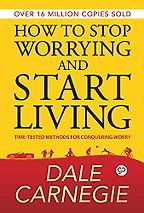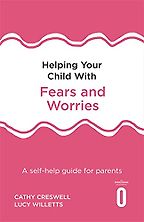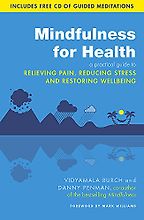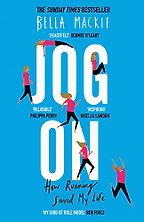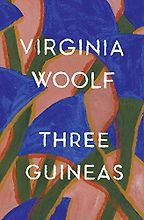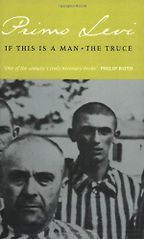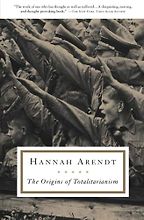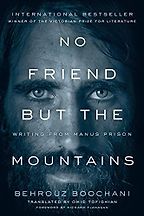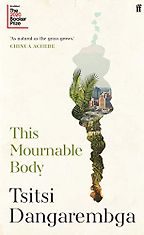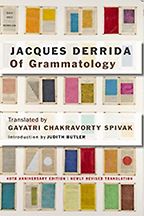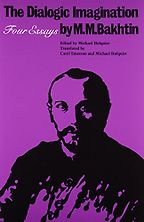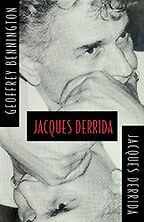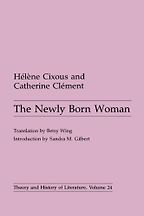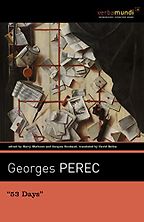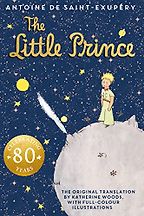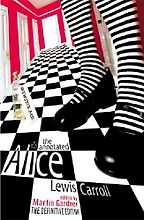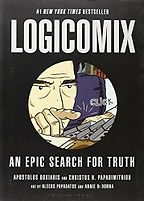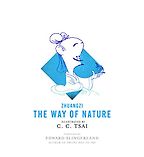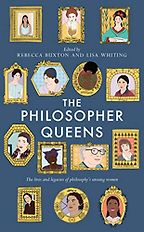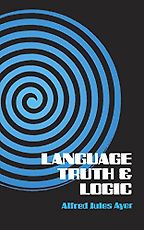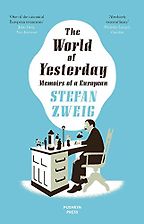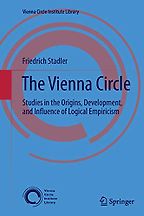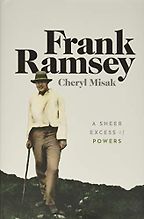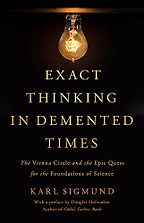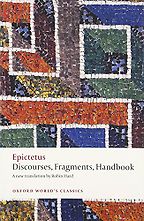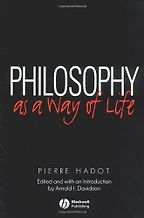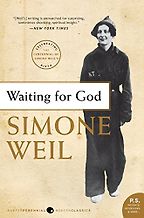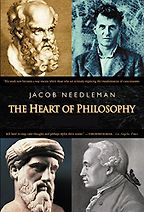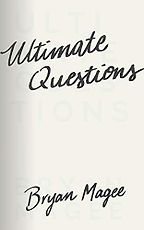Interviewer
Nigel Warburton
Interviews by Nigel Warburton
Favourite Books, recommended by Philip Pullman
The author Philip Pullman—creator of the beloved His Dark Materials trilogy, and one of the world’s great storytellers—recommends five of his favourite books: from a fragmentary masterpiece by Fernando Pessoa to P. G. Wodehouse’s comic triumphs.
The Best Thomas Hobbes Books, recommended by Arash Abizadeh
Thomas Hobbes’s master work Leviathan, in which he argued for the need to unite under a powerful sovereign as part of a ‘social contract’, has become a cornerstone of Western political philosophy. Here, the philosopher and political scientist Arash Abizadeh selects five of the best books for understanding Hobbes’s arguments in their historical context.
-

1
Lyrical Ballads
by William Wordsworth and Samuel Taylor Coleridge -

2
Letters From A Young Poet: 1887-1895
by Rabindranath Tagore -

3
The Imperative of Responsibility
by Hans Jonas -

4
Entropia: Life Beyond Industrial Civilisation
by Samuel Alexander -

5
Down to Earth: Politics in the New Climatic Regime
by Bruno Latour
The Best Eco-Philosophy Books, recommended by Rupert Read
The Best Eco-Philosophy Books, recommended by Rupert Read
Eco-philosophy concerns itself with the intersection of ecology with philosophy—and particularly our response to industrialisation and manmade climate change. Rupert Read, the philosopher-activist and author of Parents for a Future, selects five of the best books that contemplate eco-philosophy and our place on this Earth.
-

1
Feel the Fear and Do it Anyway
by Susan Jeffers -

2
How to Stop Worrying and Start Living
by Dale Carnegie -

3
Helping Your Child with Fears and Worries
by Cathy Creswell & Lucy Willetts -

4
Mindfulness For Health: A Practical Guide To Relieving Pain, Reducing Stress And Restoring Wellbeing
by Danny Penman & Vidyamala Burch -

5
Jog On: How Running Saved My Life
by Bella Mackie
The best books on Anxiety, recommended by Lucy Foulkes
The best books on Anxiety, recommended by Lucy Foulkes
Feeling anxiety is a natural part of being a human being, but for some people it can cause terrible mental and physical anguish and prevents them from leading happy and fulfilling lives. Lucy Foulkes, a psychologist at University College London, talks us through books that can help with anxiety.
The best books on Human Rights and Literature, recommended by Lyndsey Stonebridge
The connections between human rights and literature are profound and we ignore the humanities and reading at our peril, says Lyndsey Stonebridge, Interdisciplinary Professor of Humanities at the University of Birmingham. She recommends books that best show the complex relationship between literature and human rights, from Auschwitz to Manus Island.
-

1
Of Grammatology
by Jacques Derrida & translated by Gayatri Chakravorty Spivak -

2
The Dialogic Imagination: Four Essays
by Mikhail Bakhtin & translated by Michael Holquist and Caryl Emerson -

3
Jacques Derrida Circumfession
by Geoffrey Bennington & Jacques Derrida -

4
The Newly Born Woman
by Catherine Clément, Hélène Cixous & translated by Betsy Wing -

5
"53 Days"
by Georges Perec, translated by David Bellos
The best books on Deconstruction, recommended by Peter Salmon
The best books on Deconstruction, recommended by Peter Salmon
For the general reader deconstruction has a bad reputation. It is seen as over-complicating, arcane and wilfully obscure—but as its founding genius Jacques Derrida pointed out, “If things were simple, word would have gotten around.” Here Peter Salmon, author of an excellent new biography of Derrida, chooses five books to get you started on the text and everything inside it.
-

1
The Little Prince
by Antoine de Saint-Exupéry & translated by Katherine Woods -

2
The Annotated Alice
by Lewis Carroll & Martin Gardner (Editor) -

3
Logicomix: An Epic Search for Truth
by Apostolos Doxiadis and Christos H Papadimitriou -

4
The Way of Nature (The Illustrated Library of Chinese Classics)
by Zhuangzi (aka Chuang Tzu), C. C. Tsai (illustrator) and Brian Bruya (translator) -

5
The Philosopher Queens: The lives and legacies of philosophy's unsung women
by Lisa Whiting & Rebecca Buxton
The Best Illustrated Philosophy Books, recommended by Helen De Cruz
The Best Illustrated Philosophy Books, recommended by Helen De Cruz
Philosophy is a very verbal discipline with much effort made to express meaning through the very precise use of language. You might think that pictures wouldn’t get much of a look in, but you’d be wrong, as philosopher Helen de Cruz explains. She chooses five books where the philosophical meaning of the subjects under investigation are given greater depth and clarity with the use of illustrations, from ancient Chinese philosophy through to the philosopher queens of the 21st century.
-

1
Language, Truth and Logic
by AJ Ayer -

2
The World of Yesterday
by Stefan Zweig & Anthea Bell (translator) -

3
The Vienna Circle
by Friedrich Stadler -

4
Frank Ramsey: A Sheer Excess of Powers
by Cheryl Misak -

5
Exact Thinking in Demented Times: The Vienna Circle and the Epic Quest for the Foundations of Science
by Karl Sigmund
The best books on The Vienna Circle, recommended by David Edmonds
The best books on The Vienna Circle, recommended by David Edmonds
Members of ‘the Vienna Circle’ had strong views on what can and cannot be meaningfully said. They’ve had an enormous impact on modern philosophy, partly because the arrival of fascist rule in Austria scattered them around the world. Here, philosopher David Edmonds, author of The Murder of Professor Schlick, introduces us to their ideas, their milieu and the poignant background to their lives and thinking.
-

1
The Collected Works of Spinoza (Volume I)
by Baruch Spinoza & Edwin Curley -

2
Behind the Geometrical Method: A Reading of Spinoza's Ethics
by Edwin Curley -

3
A Study of Spinoza's Ethics
by Jonathan Bennett -

4
The Explainability of Experience: Realism and Subjectivity in Spinoza's Theory of the Human Mind
by Ursula Renz -

5
Spinoza on Philosophy, Religion, and Politics: The Theologico-Political Treatise
by Susan James
The best books on Spinoza, recommended by Steven Nadler
The best books on Spinoza, recommended by Steven Nadler
In 1656 Baruch Spinoza was thrown out by Amsterdam’s Portuguese-Jewish congregation for ‘abominable heresies’ and ‘monstrous deeds’, ensuring he would be forever remembered as a radical thinker. Here Steven Nadler, a professor at the University of Wisconsin-Madison and author of a number of books on Spinoza, talks us through the life and work of the 17th century philosopher whose worldview remains, in many ways, remarkably modern.
Life-Changing Philosophy Books, recommended by Eric Weiner
Can philosophy change your life? Yes, says bestselling author Eric Weiner, though partly by making it more complicated. Here, he picks five works of life-changing philosophy, from Epictetus to Jacob Needleman, a professor (emeritus) at San Francisco State University.


